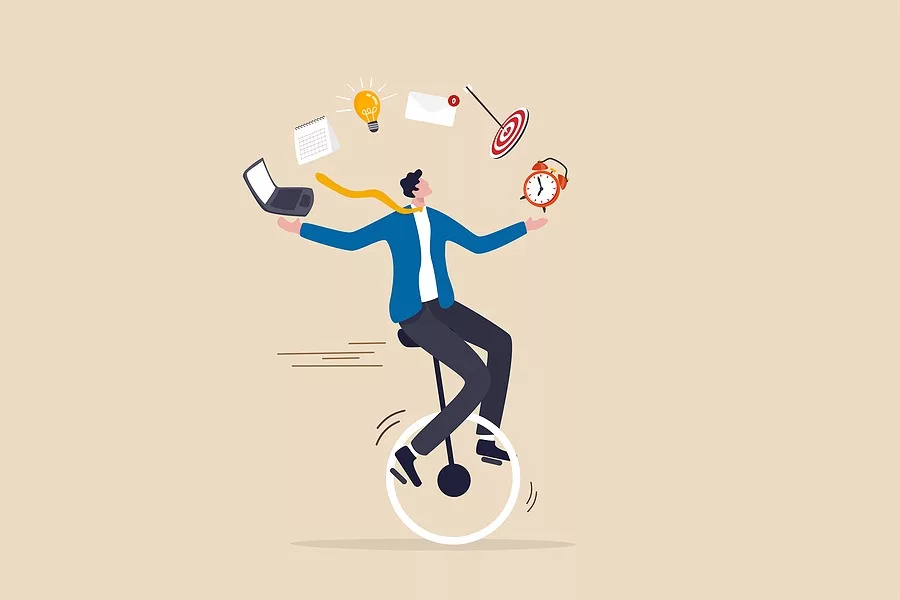I recently began coaching a client on Zoom who repeatedly checked multiple computer screens during our first coaching session. After this happened several times, and seeing how fragmented his attention was, I asked him to turn off the other monitors so he could focus on our conversation. He was immediately more present, and our conversation became more productive. There are several develop areas he wants to work on to become a stronger leader, but first I suggested he stop multitasking.
We would like to believe that attention is infinite, but it isn’t. That is why multitasking is a misnomer. The brain can focus only on one thing at a time. We take in information sequentially. When we attempt to focus on multiple tasks simultaneously, what actually happens is that we switch back and forth between tasks, paying less attention to both. This does not mean that we can’t walk and chew gum at the same time, of course. What we cannot do is concentrate in the same moment on two distinct, input-rich activities that require our attention. While we may be able to talk on the phone and stir coffee simultaneously, we can’t carry on a conversation and text at the same time without losing information and time. Studies show that when people are interrupted and must switch their attention back and forth, they take -on average- 50 percent longer to accomplish the task and make up to 50 percent more errors. That’s because each time you switch tasks, your brain must run through a complex process to disengage the neurons involved in one task and activate the neurons needed for the other. The more you switch back and forth, the more time you waste and the lower your quality of work.
Strung out by information overload, however, many of us are becoming habituated and addicted to distraction. “Successful” multitasking has been shown to activate the reward circuit in the brain by increasing dopamine levels -the brain chemical responsible for feelings of happiness. The danger of this is that the dopamine rush feels so good that we don’t notice we’re making more mistakes. It’s important to be aware of how multitasking can stimulate us into mindlessness, giving the illusion of productivity while stealing our focus and harming performance. “When you are walking, walk. When you are sitting, sit,” is ancient wisdom. Hopping rapidly from one thing to the next, answering the phone while we’re writing an email, while we’re sipping latte, we fritter away our attention and forget more easily. In addition to dopamine, multitasking prompts the release of adrenaline and other stress hormones, which contribute to short-term memory loss as well as long-term health problems. This also means that the information we take in while multitasking is harder to retrieve later than information we take in while concentrating. This is why learning to be the unitasker in a multitasking world is a worthy aim.
Rather than divide our attention, it is far more effective to focus on one thing at a time. So, the next time you sit down for a one-on-one with your boss or direct report or colleague, silence your phone and give them your undivided attention. The next time you run a meeting, ask everyone to put down their phones and other distractions and see if you have a more productive meeting. If you need to complete a large and complex task, it is more effective to take frequent breaks between intervals of sustained, one-pointed attention. One helpful strategy can be to take 5 to 10 minutes for every hour of concentrated work to do something lighter, like read a blog or take a walk for instance. This can help you continue to concentrate when you turn back to your task. Instead of hopping from thing to thing, focus on what is in front of you for an hour. Then let yourself relax for a few minutes to give your brain a rest. While this may sound counterintuitive, relaxing our focus at regular intervals and pacing our sustained concentration sharpens attention and helps our minds be more flexible. Debunking the myth of multitasking, we become more effective at what we do, we increase the chance of being able to remember the details of the work we have done, and we are more present and available for the relationships in our lives.
To elevate your leadership potential and learn more about leadership coaching, reach out to Laura for a consultation.

